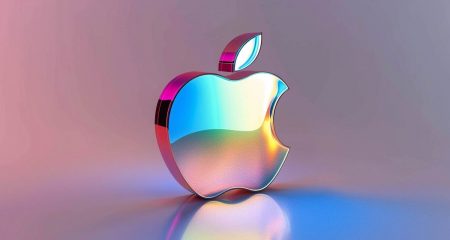 Apple is facing unprecedented backlash over an advertisement for its new iPad Pro, in which a range of creative tools are crushed – and destroyed – by a giant compressor.
Apple is facing unprecedented backlash over an advertisement for its new iPad Pro, in which a range of creative tools are crushed – and destroyed – by a giant compressor.
The ad, which featured in the video launch of the new iPad and was posted to social media by Apple CEO Tim Cook, is a slow-motion rendering showing musical instruments, cans of paint, a record player and other artistic tools overrun by the giant press as it bulldozes its way downward, smashing everything in its path.
After the press closes – and following a brief pause for dramatic effect – it lifts to reveal the new iPad, suggesting the “thinnest iPad ever” houses all the crushed tools inside its svelte body (just 5.1mm thick for the 13-inch model).
Named “Crush” by Apple, the ad emphasises the thinness of the new iPad, a design feature Apple’s executives drove home when they unveiled the device. But some critics interpreted the ad as a symbol of the tech giant’s power, the rise of artificial intelligence, and the threat it poses human labour and creativity. Others considered it simply to be in bad taste.
“Steve [Jobs] wouldn’t have shipped that ad. It would have pained him too much to watch,” Paul Graham, an early internet entrepreneur and founder of the Y Combinator start-up accelerator, tweeted in response to the ad.
But the backlash was not limited to tech luminaries. Celebrities also slammed Apple. “The destruction of the human experience. Courtesy of Silicon Valley,” tweeted Hugh Grant.
iPad ad faux pas
The creative faux pas may be a first for Apple, a company that has built a name for itself off the back of iconic advertising campaigns.
In the late 1990s, as the turn of the millennium was approaching, Apple ran a “Think Different” campaign that featured the likes of Mahatma Ghandi, Martin Luther King Junior and Muhamed Ali, cementing its identity as a brand that champions radical individuality and the power of creativity.
Perhaps the most iconic Apple advertisement is “1984”, depicting Apple as a liberator, breaking the status quo and saving the world from the tyranny of ugly computers (made by then-rival IBM).
Read: Apple debuts AI-focused M4 chip in iPad Pro upgrade
The table(t)s, it seems, have turned and many now see Apple’s new ad as confirmation that the Cupertino, California electronics giant has morphed into the Big Brother it once mocked.
“Forty years ago, Apple released the 1984 commercial as a bold statement against a dystopian future. Now you are that dystopian future. Congratulations,” X user Yuval Kordov said in reply to Tim Cook’s post.
South African advertising and marketing expert Jeremy Maggs said that when stacked up against the “brand benchmark” of the 1984 ad – which was directed by Ridley Scott – the Crush ad “falls woefully short”.
“The essence of a good ad is simplicity. This one, I’m afraid, is busy and cluttered, and the reveal at the end is disappointing. I get the sense this is one of those commercials that needed multi-committee approval. If anything saves it, it’s the soundtrack, but you can rarely go wrong with Cher,” Maggs told TechCentral.
Jeremy Sampson, MD of Brand Finance Africa and an expert on brand management and marketing, is less critical of the ad, saying that “sometimes all a brand needs is to freshen up and ignite some chatter”.
“I have been part of the Apple ecosystem for nearly 40 years, and it has served me well. Let’s have this conversation again in a week or three and see the results. Apple is a giant among brands, and that won’t change easily.”
The Pro version of the latest iPad range features more powerful M4 chips, which Apple said enhances the device’s artificial intelligence capabilities. Apple hopes the new iPads will revitalise its tablet business, which has suffered revenue declines in nine of the last 10 quarters. Apple’s broader business has also suffered from slowing growth, although better-than-expected sales in China, one of its largest markets, bolstered investor sentiment when it released its quarterly results last week, boosting its capitalisation by over $160-billion. – © 2024 NewsCentral Media




